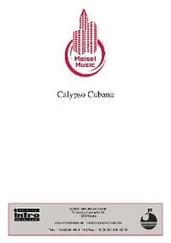Harry Frank - Alas, Babylon
Здесь есть возможность читать онлайн «Harry Frank - Alas, Babylon» весь текст электронной книги совершенно бесплатно (целиком полную версию без сокращений). В некоторых случаях можно слушать аудио, скачать через торрент в формате fb2 и присутствует краткое содержание. Город: New York, Год выпуска: 2005, ISBN: 2005, Издательство: HarperCollins Publishers, Жанр: sf_postapocalyptic, на английском языке. Описание произведения, (предисловие) а так же отзывы посетителей доступны на портале библиотеки ЛибКат.
- Название:Alas, Babylon
- Автор:
- Издательство:HarperCollins Publishers
- Жанр:
- Год:2005
- Город:New York
- ISBN:0060741872
- Рейтинг книги:5 / 5. Голосов: 1
-
Избранное:Добавить в избранное
- Отзывы:
-
Ваша оценка:
- 100
- 1
- 2
- 3
- 4
- 5
Alas, Babylon: краткое содержание, описание и аннотация
Предлагаем к чтению аннотацию, описание, краткое содержание или предисловие (зависит от того, что написал сам автор книги «Alas, Babylon»). Если вы не нашли необходимую информацию о книге — напишите в комментариях, мы постараемся отыскать её.
Alas, Babylon — читать онлайн бесплатно полную книгу (весь текст) целиком
Ниже представлен текст книги, разбитый по страницам. Система сохранения места последней прочитанной страницы, позволяет с удобством читать онлайн бесплатно книгу «Alas, Babylon», без необходимости каждый раз заново искать на чём Вы остановились. Поставьте закладку, и сможете в любой момент перейти на страницу, на которой закончили чтение.
Интервал:
Закладка:
Randy had carefully rationed salt since he was shocked, in July, to discover how few pounds were left. Salt was a vital commodity, not just white grains you shook on eggs. Dan used saline solutions for half a dozen purposes. The children used salt to brush their teeth. Without salt, the slaughter of the Henry pigs would have been a terrible waste. They planned to tan one hide to cut badly needed moccasins, and without salt this was impossible.
As soon as they were out of salt it seemed that almost everything required salt, most of all the human body. Day after day the porch thermometer stood at ninety-five or over and every day all of them had manual labor to do, and miles to walk. They sweated rivers. They sweated their salt away, and they grew weak, and they grew ill. And all of Fort Repose grew weak and ill for there was no salt anywhere.
In July Randy had gone to Rita Hernandez and she had traded five pounds of salt to him for three large bass, a bushel of Valencias, and four buckshot shells. She had traded not so much for these things, Randy believed, but because he had helped her arrange decent burial for Pete, and provided the pallbearers to carry him to Repose-in-Peace-Park. Since July, he had been unable to trade for salt anywhere. In Marines Park, a pound of salt would be worth five pounds of coffee, if anyone had coffee. You could not even buy salt with corn liquor, potent if only slightly aged.
In August the traders in Marines Park dragged themselves about like zombies, for want of salt. And for the first time in his life Randy felt a weird uneasiness and craving that became almost madness when he rubbed the perspiration from his face and then tasted salt on his fingers. Now he understood the craving of animals for salt, understood why a cougar and a deer would share the same salt lick in the enforced truce of salt starvation.
But even more important than salt was fish, for the fish of the river was their staple, like seal to the Eskimo. It had been so simple, until August. Their bamboo set poles, butts lodged in metal or wooden holders on the ends and sides of their docks, each night usually provided enough fish for the following day. In the morning someone would stroll down to the dock and haul up whatever had hooked itself in the hours of darkness. If the night’s automatic catch was lean, or if extra fish were needed for trading, someone was granted leave from regular chores to fish in the morning, or at dusk when the feeding bass struck savagely. Their poles grew in clumps, they had line aplenty, hooks enough to last for years (fishing had been the pre-Day hobby of Bill McGovern and Sam Hazzard as well as Randy) and every kind of baitworms, crickets, grasshoppers, tadpoles, minnows, shiners—for anyone capable of using a shovel, throw net, or simply his hands.
Randy had more than a hundred plugs and spoons and perhaps half as many flies and bass bugs. He had bought them knowing well that most lures are designed to catch fishermen rather than fish. Still, on occasion the bass would go wild for artificials and in the spring the specks and bream would snap up small flies and tiny spoons. So fish had never been a problem, until they stopped biting.
When they stopped they stopped all at once and all together. Even with his circular shrimp net, wading barefoot in the shallows, Lib beside him hopefully carrying a bucket, Randy could not net a shiner, bream, cat, or even mudfish. Randy considered himself a good fisherman and yet he admitted he didn’t understand why fish bit or why they didn’t. August had never been a good month for black bass, true, but this August was strange. Only during thunderstorms was there a ripple on the river. A molten sun rose, grew white hot, and sank red and molten, and the river was unearthly still and oily, agitated no more than Florence’s aquarium. Even at crack of dawn or final light, no fish jumped or swirled. It was bad. And it was eerie and frightening.
In the third week of August when they were all weak and half-sick Randy spoke his fears to Dan. It was evening. Randy and Lib had just come from the hammock. For an hour they had crouched together under a great oak waiting for the little gray squirrels to feed. They had been utterly quiet and the squirrels had been noisy and Randy had blasted two of them out of the tree with his double twenty, a shameful use of irreplaceable ammunition for very little meat. Yet two squirrels was enough to give meat flavor to a stew that night. What they would have for breakfast, if anything, nobody knew. They found Dan in Randy’s office, with Helen trimming his hair. Randy told them about the two squirrels and then she said, “Dan, I’ve been thinking about the fish. I’ve never seen fishing this bad before. Could anything big and permanent have happened? Could radiation have wiped them out, or anything?”
Dan scratched at his beard and Helen brushed his hand down and said, “Sit still.”
Dan said, “Fish. Let me think about fish. I doubt that anything happened to the fish. If the river had been poisoned by fallout right after The Day the dead fish would have come to the surface. The river would have been blanketed with fish. That didn’t happen then and it hasn’t happened since. No, I doubt that there has been a holocaust of fish.”
“It worries me,” Randy said.
“Salt worries me more. Salt doesn’t grow or breed or spawn. You either have it or you don’t.”
Helen swung the swivel chair. Dan was facing the teak chest. Suddenly he lifted himself out of the chair, flung himself on his knees, opened the chest and began to dig into it. “The diary!” he shouted. “Where’s the diary?”
“It’s there. Why?”
“There’s salt in the diary! Remember when Helen was reading it to me after I was slugged by the highwaymen? There was something about salt in it. Remember, Helen?”
Randy had not looked into the log of Lieutenant Randolph Rowzee Peyton for years, but now it was coming back to him, and he did remember. Lieutenant Peyton’s Marines had also lacked and needed salt, and somehow obtained it. He dropped on his knees beside Dan and quickly found the log. He skimmed through the pages. Lieutenant Peyton, as he recalled it, had run out of salt in the second year. He found an entry, dated August 19, 1839:
“The supply boat from Cow’s Ford being much overdue, and my command lacking salt and suffering greatly from the heat, on 6 August I dispatched my loyal Creek guide, Billy Longnose, down the St. Johns (sometimes called River May) to discover the cause of delay. Today he returned with the information that our supply boat, beating its way upstream, had put into dock at Mandarin (a town named to honor the oriental nation from which it imported its orange trees). By ill luck, on that night the Seminoles raided Mandarin, putting to death a number of its inhabitants and burning the houses. The master of the supply boat, a civilian, and his crew, consisting of a white man and two Slaves, escaped to the woods and later reached St. Augustine. However, the boat was pillaged and then burned.
All other privations my men can endure except lack of water and lack of salt.”
The next entry was dated August 21. Randy read it aloud:
“Billy Longnose today brought to the Fort a Seminole, a very dirty and shifty-eyed buck calling himself Kyukan, who offered to guide me to a place where there is sufficient salt to fill this Fort ten times over. So he says. In payment he demanded one gallon of rum. While it is unlawful to sell sprints to the Seminoles, nothing is said about giving them drink. Accordingly, I offered the buck a half-gallon jug, and he agreed.”
Randy turned the page and said, “Here it is. Twenty-three April”:
“This day I returned to Fort Repose in the second boat, bringing twelve large sacks of salt. It was true. I could have filled the Fort ten times over.
Читать дальшеИнтервал:
Закладка:
Похожие книги на «Alas, Babylon»
Представляем Вашему вниманию похожие книги на «Alas, Babylon» списком для выбора. Мы отобрали схожую по названию и смыслу литературу в надежде предоставить читателям больше вариантов отыскать новые, интересные, ещё непрочитанные произведения.
Обсуждение, отзывы о книге «Alas, Babylon» и просто собственные мнения читателей. Оставьте ваши комментарии, напишите, что Вы думаете о произведении, его смысле или главных героях. Укажите что конкретно понравилось, а что нет, и почему Вы так считаете.












